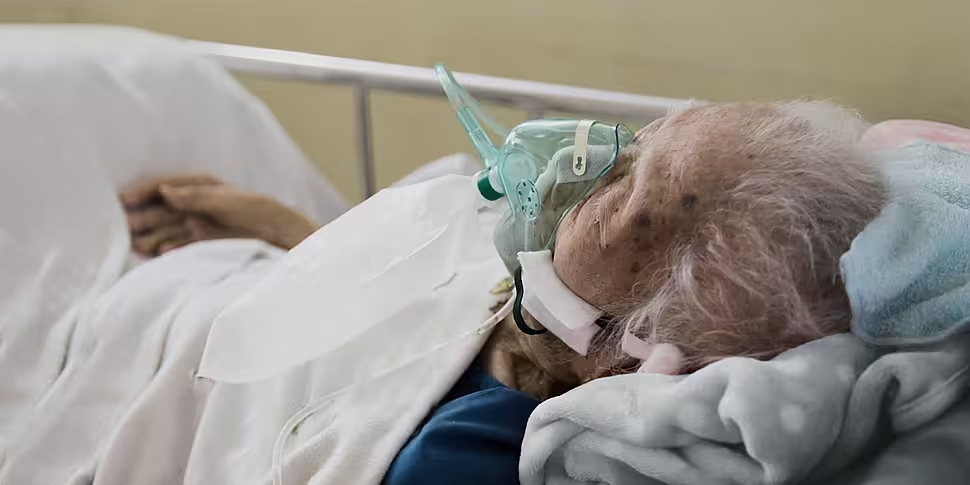People are 'dying unnecessarily' as a result of the bed shortage in Irish hospitals, a consultant in emergency medicine has warned.
Mick Molloy was speaking as 838 patients were waiting on trolleys across the country on Wednesday - the second-highest figure ever recorded.
Dr Molloy told Newstalk Breakfast there is no quick fix.
"There isn't a quick solution, that is the problem," he said.
"This is a massive building programme across the whole State required.
"The bed capacity in hospitals is dramatically below international levels, and it is dangerous.
"People are dying unnecessarily as a result."
'Lack of progress'
He said asking people to do more work to clear the backlog is the wrong approach.
"The call, I think, is in the wrong direction," he said.
"I work in a small hospital... there are only three of us employed in this Emergency Department.
"One of the consultants covers another Emergency Department for their on-call, because that was the way the HSE set up the Emergency Departments in the '90s and 2000s.
"So there are only two of us who do on-call services in the hospital; there isn't much more you can do when there's only two of you.
"The situation relates to a lack of capacity in beds, not specifically medical staff and nursing staff - although there are capacity issues there as well.
"The major issue is the inactivity and the lack of progress of the Government in implementing their own reports, dating back to the early 2000s when the current Tánaiste was the Minister for Health".
'Less beds than 2011'
Dr Molloy said the system previously had 11,832 beds, and needed 5,000 more by 2011.
"They gave a staged progress plan for how that would be achieved by 2011: not alone have we not achieved it, we actually have less beds now than we did back then with over a million greater population," he said.
"Yet we're being told 'We'll need another report into this' - I'd love to collate all these reports and use them as a foundation for my well-needed extension to our Emergency Department".
He said consultant vacancies cannot be filled.
"We're now in a major challenge where every hospital is trying to recruit from a very small number of people who are coming through the training programme," he said.
"The training programmes just aren't big enough currently to cope with the large numbers of vacancies.
"There's nearly 1,000 consultant vacancies in the system, so asking the people who remain to work harder is probably going to incentivise some people to say 'It's time for me to retire'," he added.









